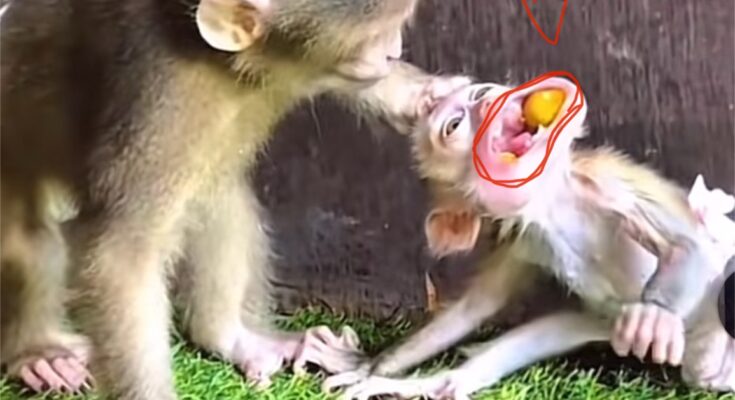In the dense heart of the tropical rainforest, where the canopy filters golden sunlight and the air is thick with the scent of ripe fruit, a small monkey named Tiko found himself in serious trouble—because of his own greed.
Tiko was the youngest in his troop of capuchin monkeys, known for his boundless energy, curiosity, and a growing appetite for the sweet fruits that hung temptingly from the trees. One afternoon, after the troop had moved into a particularly bountiful patch of forest, Tiko saw what he believed to be the jackpot: a tree overflowing with ripe figs, bananas, and wild berries.
Excited, and without waiting for the others, he leapt from branch to branch, stuffing his cheeks with every juicy piece of fruit he could find. Tiko wasn’t thinking about the consequences—he was thinking about hoarding as much as he could before the others noticed.
But in his haste, something went terribly wrong.
While gobbling down a large, overripe fig, Tiko began to cough violently. A chunk had lodged in his throat. Panic set in. He clutched at his neck, gasping, eyes wide with fear. His small body trembled on the branch, struggling for breath.
The jungle, usually so noisy, fell silent for Tiko in that moment.
Luckily for him, not far behind was Boro—the largest monkey in the troop. Boro was an older, much bigger howler monkey who was known not only for his deep calls echoing through the forest but also for his calm, watchful nature.
Hearing Tiko’s strange coughing and noticing his distress, Boro swung swiftly into action. He climbed to the branch where Tiko was perched and immediately recognized the seriousness of the situation. Without hesitation, Boro held the little monkey gently but firmly, turning him over slightly and giving several calculated thrusts to his back using both his strength and experience.
With a final gasp and a splutter, the chunk of fruit dislodged from Tiko’s throat and flew to the forest floor below. Tiko collapsed into Boro’s arms, breathing hard but alive.
The rest of the troop had gathered by now, watching the dramatic scene unfold. Some offered comfort; others chirped in concern. Tiko, wide-eyed and shaken, clung to Boro, who patted his back softly.
From that day forward, Tiko learned a valuable lesson—not just about eating in moderation, but about the importance of looking out for one another. He had been greedy and careless, but it was the kindness and quick action of Boro that saved his life.
In the wild, survival often depends not just on instinct, but on the bonds of community. Tiko’s near-tragedy turned into a tale that the troop would pass on through chirps, hoots, and howls—a story of youthful folly, a near miss, and the quiet heroism of a gentle giant.



